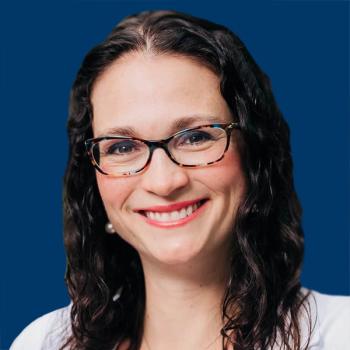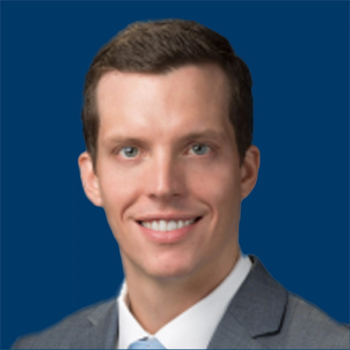
- September 2020
- Volume 1
- Issue 1
Make Time for Your Own Health
Although graduate medical education at many hospitals includes provisions to ensure that trainees remain physically, emotionally, and mentally healthy, few residents and fellows make use of these resources.
Hospitals and academic medical centers are paying more attention to the well-being of their trainees as burnout rates remain high in residency and fellowship training. Although graduate medical education (GME) at many hospitals includes provisions to ensure that trainees remain physically, emotionally, and mentally healthy, just a few of the residents and fellows make use of these resources. Discounted gym or group training memberships and joint services through departments of psychiatry for counseling, stress management, and mental health services often go unused as trainees struggle to find enough hours in the day to care for their patients and care for themselves.
Residency and fellowship are synonymous with embracing new norms while surrounded by uncertainty, whether than means treating patients during a pandemic, applying for a match, or comforting the family member of a dying patient. That said, you can only perform your best if you first take care of yourself. What follows are a few critical things that we wish we had implemented a lot sooner.
Nutrition and Hydration
Only coffee for breakfast and then hoping for chiefs to arrange the best lunch during noon conference is the norm for trainees—and the “best lunch” is often pizza from a local pizzeria, cold wraps from the closest deli, or some poor facsimile of Indian, Chinese, Thai, or Mexican food. This assumes that the GME is not working on a limited budget and that the program chiefs have the funds allotted to order food. Otherwise, lunch may be just crackers, peanut butter, or applesauce from the ICU fridge (while we justify to ourselves that we are not stealing). By the time you’re home from your clinic, short call, or long call, preparing dinner is the last thing on our mind. Relying on takeout or quick microwavable meals is the fastest, cheapest option.
Plus, you’ve barely had any water all day long. Even mild dehydration can cause fatigue, and you’ve got more than enough reasons to be fatigued without adding another. The National Academies of Sciences, Engineering, and Medicine recommends daily water intake of approximately 15.5 cups (3.7 liters) for men and 11.5 cups (2.7 liters) for women, depending on activity level.1 It probably isn’t necessary to stress the importance of keeping hydrated to an audience of physicians, but it’s easy to forget about water when you’re grinding through a busy day. Plus, proper hydration can help you maintain focus.2
A few things that Rohit implemented shortly after being exhausted halfway through his first year of fellowship included meal preparation and carrying a bottle of water at all times. Every weekend, he would spend a few hours preparing 5 to 6 balanced meals that usually included some carbohydrates and a source of protein, along with some raw seeds or nuts. He also became a big proponent of smoothies because you can pack a lot of good nutrients in a single smoothie. Rohit also made sure to carry his 1-liter reusable water bottle everywhere.
Meal prep and remembering to carry a water bottle sometimes got tedious. But as Rohit saw the benefit of being prepared for each week, it soon became a habit.
Fitness
Take a minute, close your eyes, and imagine what it would be like if you had started stretching or working out or running for just 30 to 45 minutes a few times a week during your college days? We all have heard the rhetoric around saving money early because of the magical effects of “compounding.” It is no different when it comes to fitness. The earlier you start, the better it is for you. But it is never too late to start. Five years from now, you do not want to ask yourself, “What if I started 5 years ago?”
It’s easy to lapse into bad habits and let your fitness routine fall by the wayside. Residents are at increased risk for gaining weight due to changes in environment, resources, stress level, and nonadherence to healthpromoting practices. Findings from a study conducted by Leventer-Roberts and colleagues showed that residents were more likely to be overweight (BMI ≥ 25) at the beginning of PGY-3 than at the beginning of postgraduate year (PGY)-1 (49% vs 30%; OR, 2.26; 95% CI, 1.19-4.28).3
This should not come as a surprise to most of us. This is not about body shaming, nor are we recommending that you drop everything and start training for your first triathlon. But finding some time to invest in your own personal body is essential.
Little things can make a big difference. While in the hospital, Rahul was more conscious of using the staircase instead of the elevators. What worked best for him outside of work was signing up for racquetball and attending a group training session once a week with other residents so that they could all hold each other accountable.
Emotional Health
Data from a meta-analysis of more than 17,500 residents showed that up to 43% were positive for depression or depressive symptoms.4 Furthermore, findings from a study of 654 medical interns showed that 42.5% were positive for depression. Of those, just 22.7% sought help during the intern year. The most-often cited barriers to seeking treatment included lack of time (91.5%), preference to manage problems on their own (75.1%), lack of convenient access (61.8%), and concerns about confidentiality (57.3%).5 Though the majority of these physicians showed no clinical signs of impairment, these depressive symptoms often lead to burnout. The data are yet to mature, but it is likely that these numbers will be higher in due to the coronavirus disease 2019 pandemic.
During his training, Rohit was fortunate to have good social support at work and outside of work. Implementing 5 to 10 minutes of daily mediation in his routine has also played a pivotal role. However, there has to be a systematic shift throughout GME, and physicians in training should have more support and structured time to address mental health individually and in a safe environment.
Looking back, each and every single day was long by itself, but 6 years in total of training flew by. With the chance to do it again, we would certainly be more mindful of our mental, physical, and emotional health. Neglecting your own needs could come at a very steep cost in the future.
There is no need to put “Join a gym” at the top of your New Year’s resolution list—make it a goal for tomorrow. Or, even better, today. Make eating healthy part of your daily routine so it becomes a habit. Take charge of yourself so you can live long and lead a better life, which can enhance not only your academic resumé, but also your life resumé.
References
- Report sets dietary intake levels for water, salt, and potassium to maintain health and reduce chronic disease risk. News release. National Academies of Science Engineering, and Medicine. February 11, 2004. Accessed July 21, 2020. bit.ly/2WJq6LV
- Hydration benefits: Why water is the essence of good health. Industrial Safety & Hygiene News. April 1, 2020. Accessed July 21, 2020. https://www.ishn.com/ articles/112429-hydration-benefits-why-water-is-the-essence-of-good-health
- Leventer-Roberts M, Zonfrillo MR, Yu S, Dziura JD, Spiro DM. Overweight physicians during residency: a cross-sectional and longitudinal study. J Grad Med Educ. 2013;5(3):405-411. doi:10.4300/JGME-D-12-00289.1
- Mata DA, Ramos MA, Bansal N, et al. Prevalence of depression and depressive symptoms among resident physicians: a systematic review and meta-analysis. JAMA. 2015;314(22):2373-2383. doi:10.1001/jama.2015.15845
- Guille C, Speller H, Laff R, Epperson CN, Sen S. Utilization and barriers to mental health services among depressed medical interns: a prospective multisite study. J Grad Med Educ. 2010;2(2):210-214. doi:10.4300/JGME-D-09-00086.1
Articles in this issue
over 5 years ago
5 Tips for a First-Year Fellowover 5 years ago
Surgical Oncology Is More Than Just Surgeryover 5 years ago
Now Is the Time for Action in Oncologyover 5 years ago
Mentoring Oncologists in the Era of Social Distancing





































